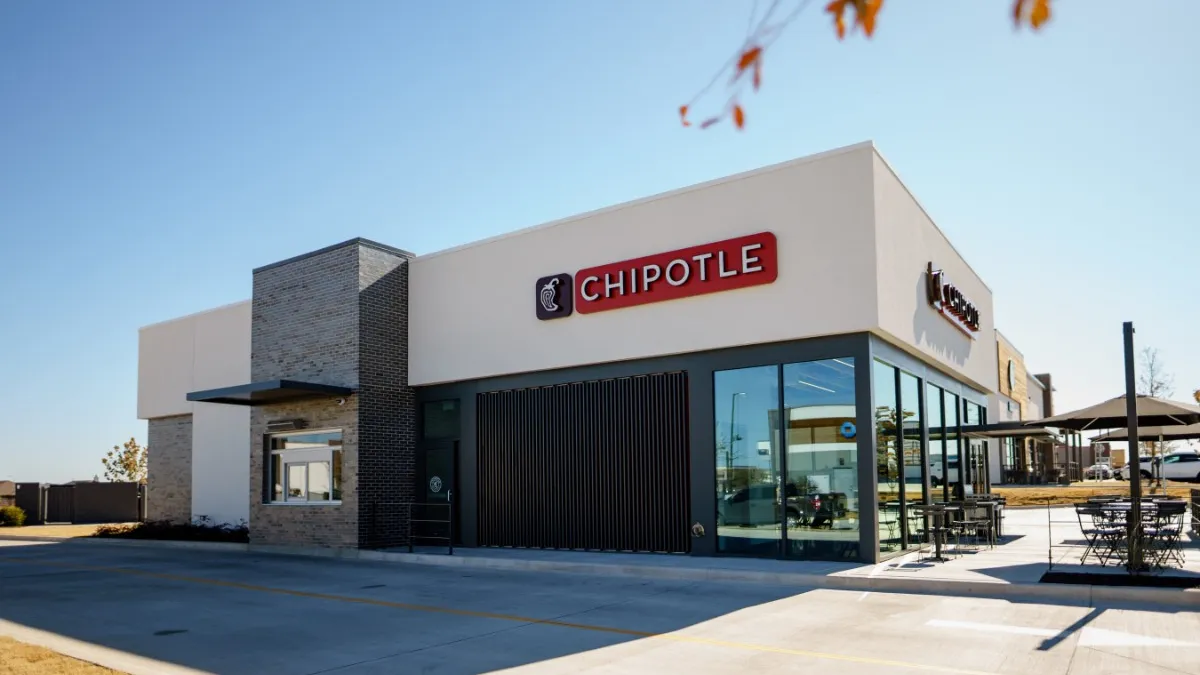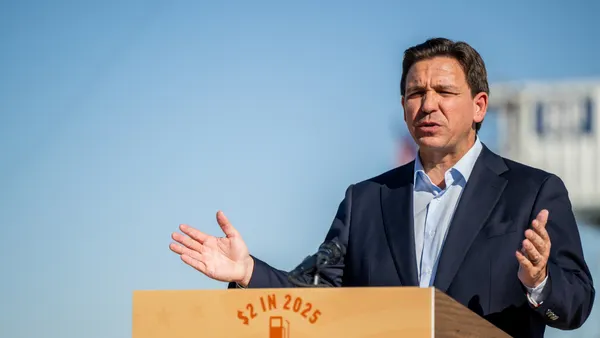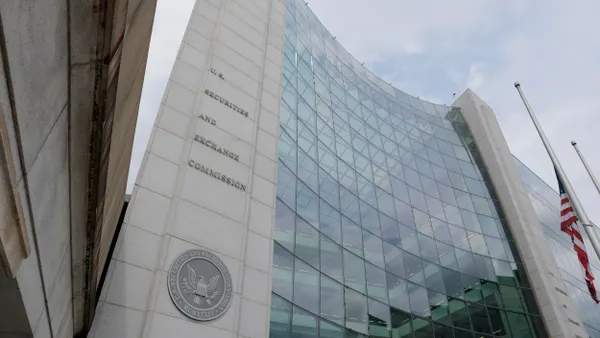Before all 50 states enacted some form of government-mandated shutdown, before the pandemic caused a rate of nearly 20% unemployment, and before terms such as "flatten the curve" and "social distancing" formally entered the American lexicon, Jack Hartung, CFO of Chipotle, devised a plan.
Under his leadership, Chipotle became one of the first restaurants to publicly express its financial confidence for the rest of 2020. Hartung wasn't worried about Chipotle's income, customer base, or their staff, even as other restaurants, such as The Cheesecake Factory, scrambled to delay rent obligations.
"We can get through for many months, even a year, at these kinds of depressed sales levels," Hartung told Bloomberg on April 1, at which point the chain's sales had dropped about 35%.
Two months later, Hartung hasn't retracted his words. Chipotle, a public company with no small number of challenges under its belt, still has about $900 million in the bank, and is distancing itself from its competitors.
"If we slow capital spending, our $900 million will last three years," he told CFO Dive this week. "No matter what happens, we're able to navigate this."
Principles of fiscal discipline
"You can never prepare for something like this, but we've been through other challenges, and we've always been fiscally disciplined," Hartung said.
At the core of his plan is to keep ample cash on hand. "We've always been conservative with our balance sheet, so we've always had excess cash for if we hit a bump in the road, or find an opportunity for capital expansion, we can accelerate growth," he said.
Maintaining that flexibility, relying on that financial backing, overcoming challenges, taking advantage of opportunities: for Chipotle to have a long-term sense of purpose, Hartung feels a need to do all these things.
Hartung didn't pull these values out of thin air once the pandemic hit and foot traffic began to plummet; rather, they have been front and center since Chipotle was young. The company raised over $100 million at its IPO in January 2006. That money remains untouched, a part of its $900 million balance in reserves that has kept 97% of its American storefronts open in a crisis that has brought the restaurant industry to its knees.
"That's what you get when you have a financially disciplined and fiscally responsible approach," Hartung says. "We're aggressive in going after our purpose, but we're going to do it in a financially disciplined way."
Hartung and his team have resisted occasional requests from Wall Street to do what he calls "financial engineering" — using the balance sheet to add incremental shareholder value.
"We could have spent all $900 million on buying back stock. We could have gone out and borrowed additional money to buy back more stock. And that would have added a few percentage points in shareholder value," he said. "But we're not looking to have a one-time pop with a little top spin on the stock price. We're in this for the long haul, for many decades."
Hartung's principle of resisting financial engineering temptation means when he hits a bump in the road, like the pandemic, he has a balance sheet to support him. Not every company is able to resist that temptation, he said, and by the time a challenge comes along, if those companies are highly leveraged and don't have much breathing room, it's too late to dig their way out.
Going digital
One area in which Hartung has forgone frugality is digital expansion, and encourages his peers to do the same. "Chipotle has been making significant investments in digital over the last few years, and that has paid off in a big way," he said. "You've seen our results. In April, we had digital sales as high as 70%. That was up from 20%, pre-COVID. Three or four years ago, it was only 5% of our business. Companies without a digital offering are struggling a lot, lot, lot more."
Alongside Chipotle's booming in-app pickup feature, it also is in a prime position to accelerate growth and open more restaurants. "Some companies are pulling back, preserving cash and slowing down their openings," Hartung said. "We think, as that happens, we'll be able to actually pick up more sites."
Additionally, Hartung intends to more aggressively build his pipeline, opening more stores, not less, going forward.
And perhaps the most notable way in which Chipotle has distinguished itself from competitors "We haven't had, and don't plan on, any layoffs," Hartung said. "We don't plan any kind of reorganization. From a staff support standpoint, we’re continuing to hire the same kind of great people, and drive the same kind of great culture, built around this purpose of cultivating a better world."
During the first quarter alone, Chipotle committed to about $30 million of extra pay, Hartung said, including a 10% assistance pay and discretionary bonuses to managers and field leaders. "People are struggling, and rather than pull back and reduce the staff or reduce pay, we're doubling down on it," Hartung said. "This isn't about just getting through the pandemic; it's about investing in our people, and making sure they feel part of something special. We think it'll pay off over the long term, as people appreciate being part of this organization."
The fast casual of the near-future
In the short and medium term, anything that was self-serve before, like forks, napkins or hot sauce, is now behind the counters, underscoring the need for cleanliness and safety.
"That's interim stuff we'll have to do for some period of time, probably until we get a vaccine," he said. "Over time, as people feel more safe, and as the vaccine comes into play, dining rooms will return to normal."
However, Hartung believes customers will be more discerning of the restaurants they choose to visit, and the cleanliness thereof.
"You're always striving to make sure that your food is safe, from the farm to the restaurant, or to the counter when you're serving the customer. And we've done some really, really significant things, and made important investments in that over the years,” Hartung said. “But the idea is really to make sure you're positioned to handle whatever risk comes your way. You don't know if it will be a global pandemic, or a recession, or what. Plan for the long term, and set up your business so that when a challenge hits, no matter what it is, it can financially withstand it."
If you go into any kind of a challenge, whether global or just company-wide, and you're highly leveraged, and you're burning through cash, with no breathing room, you’re in trouble, Hartung said. "The businesses that were struggling going into the pandemic, those are the ones that filed for bankruptcy first, and those are the ones that are going to have a hard time getting through and surviving this pandemic, if they survive it at all."
Advice to other CFOs
Despite the relative financial health of his business, Hartung acknowledges the immense pressure under which many CFOs currently find themselves.
"I know CFOs are really, really busy," he said. "The very financial survival of the company is in their hands. I advise finance and accounting professionals to find some time to take a step back, take note of the very most important things that will make your company a success over the very long term."
Hartung urges CFOs and VPs of finance not to lose sight of three very important factors.
Number one: Make sure you've got great people on your team. "And when you've got great people on your team, make sure you invest in them, invest in their development, and make sure you care about them, and they feel supported."
Number two: Invest in a culture in which you're not just the bean counter; you're shoulder-to-shoulder with all the other business leaders, helping ensure the company is thriving, and that you're partnered with other leaders every step of the way. "Don't be the accounting or the finance leader to be the vote that says, 'no, you can't spend that money.'"
Number three: Make sure you plan for the long term. "Finance and accounting professionals, in the day-to-day, they're in the closing of the books on a monthly basis, reporting results on a quarterly basis. But make sure you take a step back, look at the long term, and make sure you're making the investments today that will pay off a year from now, three years from now, five and 10 years from now.”
CFOs can often lose sight of those three ideas when they get caught up in the finer details of their very stressful jobs, Hartung said. "And I think, if every finance professional focuses on their people, their culture, and their investment in the long term, their futures should be bright."














